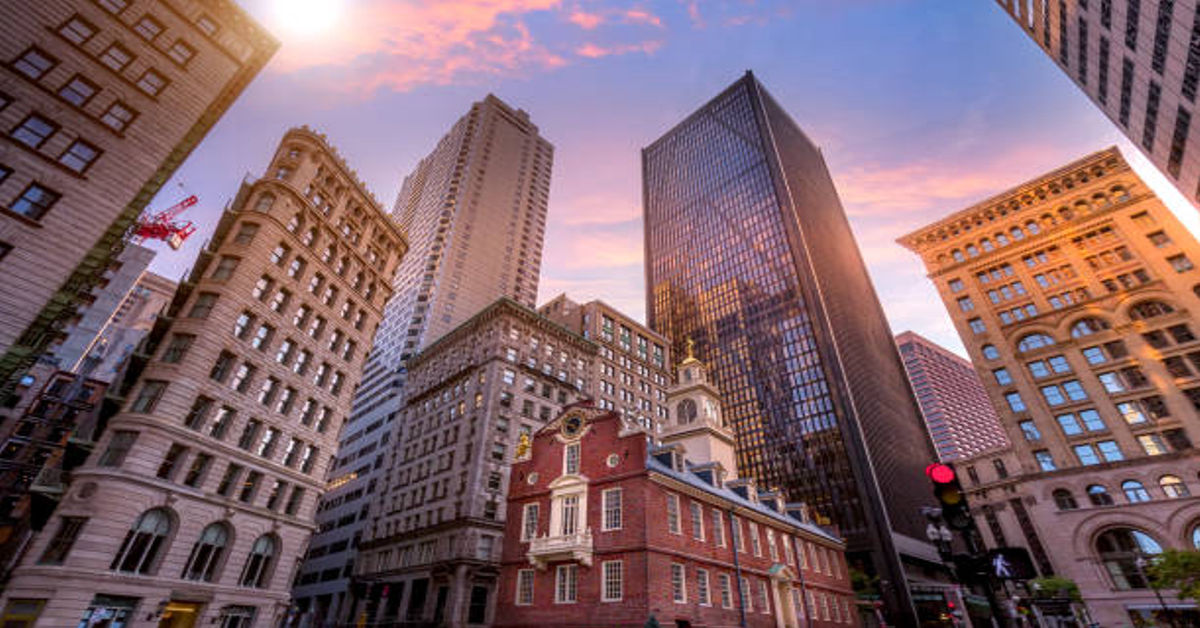
Boston, the heart of New England, has long been a city that blends timeless history with modern sophistication. Among its cobblestone streets, revolutionary landmarks, and waterfront skyline lies an impressive network of luxurious accommodations known collectively as the New England Boston Hotel experience. These hotels are more than just a place to stay—they represent the living heritage of Boston’s cultural identity, architectural beauty, and warm hospitality. Whether you are visiting for business, education, leisure, or history, the hotels of New England in Boston promise unmatched elegance and comfort wrapped in a uniquely American charm.
This article explores in detail what makes a New England Boston hotel special—from its historical influence and design philosophy to its services, amenities, and guest experience. You’ll also discover insider tips on choosing the best hotel for your purpose, how Boston’s seasons affect hospitality trends, and what distinguishes these hotels from others in the United States.
1. The Legacy of Hospitality in New England Boston Hotels
New England has a long-standing tradition of welcoming travelers with warmth and refinement. The concept of the Boston hotel emerged during the colonial era when travelers between cities like New York and Portland required safe, comfortable lodging. Early Boston inns were modest, often family-run establishments providing a bed, meal, and community conversation. Over time, as Boston flourished into an intellectual and economic powerhouse, hospitality evolved into an art form.
Today’s New England Boston hotels carry that legacy forward. They preserve the spirit of colonial hospitality but elevate it with modern luxuries. The architectural designs of many of these hotels reflect the colonial, Georgian, or Federal styles, characterized by brick exteriors, grand pillars, and intricate moldings. Inside, visitors experience a harmonious blend of vintage décor and contemporary comfort—plush linens, smart rooms, and technology-integrated services that enhance convenience while respecting tradition.
2. Location and Accessibility: The Heartbeat of New England Charm
One defining feature of New England Boston hotels is their strategic location. Boston is compact yet diverse, and most top hotels are conveniently situated near the city’s major attractions, universities, hospitals, and financial centers. Whether you want to explore the Freedom Trail, attend a conference in the Seaport District, or enjoy a peaceful view of the Charles River, there’s a New England hotel positioned perfectly for your purpose.
| Area | Notable Attractions Nearby | Ideal For | Example of Hotel Style |
|---|---|---|---|
| Back Bay | Newbury Street, Copley Square, Prudential Center | Luxury travelers, shoppers | Boutique & high-end luxury hotels |
| Downtown / Financial District | Faneuil Hall, Boston Common, Waterfront | Business travelers | Modern urban hotels with conference halls |
| Cambridge (across the river) | Harvard University, MIT | Academics, intellectuals | Classic inns and university-inspired lodges |
| Seaport District | Boston Harbor, Institute of Contemporary Art | Trendy travelers, events | Contemporary waterfront hotels |
| Beacon Hill | State House, historic homes, quaint streets | Couples, history lovers | Heritage hotels with colonial design |
This accessibility gives Boston hotels a unique advantage—they connect the traveler directly to the city’s pulse. You can step out of your lobby and within minutes be at a historic church, a world-class restaurant, or a cultural venue.
3. Architectural Excellence and Design Philosophy
When you step into a New England Boston hotel, the first thing that strikes you is the architecture. Unlike many modern cities where hotels look similar, Boston’s hotels respect architectural authenticity. Some are housed in converted 19th-century mansions or former shipyard warehouses, while others were purpose-built to resemble colonial estates.
The architectural identity of these hotels often reflects three main influences:
- Colonial Heritage: High ceilings, white columns, brick façades, and arched windows pay homage to Boston’s 18th-century charm.
- Modern Minimalism: Many hotels in newer areas, like the Seaport, showcase glass-fronted towers, energy-efficient designs, and smart automation systems.
- Hybrid Designs: Some hotels skillfully merge both worlds—classic wooden interiors complemented by modern amenities like digital concierge systems and eco-lighting.
Interior designs in New England Boston hotels often feature deep mahogany furniture, maritime artworks, fireplaces, and soothing neutral tones. These interiors are designed to invoke calmness, elegance, and a sense of home.
4. Rooms and Suites: Comfort with a Cultural Touch
Guest rooms in New England Boston hotels are designed to provide an atmosphere of warmth and relaxation. From compact urban rooms to lavish suites with panoramic skyline views, every space is curated with a sense of purpose.
Typical features include:
- Premium linens, duvets, and hypoallergenic pillows
- Smart climate control systems
- Marble bathrooms with soaking tubs or rain showers
- Workspaces with ergonomic chairs
- Complimentary high-speed Wi-Fi
- Large windows offering views of either the Charles River, Boston Common, or the harbor
Luxury suites often include private living areas, walk-in closets, and access to exclusive lounges. Many hotels also feature themed suites inspired by Boston’s maritime history or literary heritage, adding character to the stay.
5. Dining and Culinary Experiences
Boston’s culinary landscape is as diverse as its people, and hotels in the city play a major role in showcasing that diversity. Most New England Boston hotels feature multiple dining options ranging from fine-dining restaurants to cozy bars and rooftop lounges.
Signature culinary highlights include:
- New England Clam Chowder – A rich, creamy soup featuring local clams, potatoes, and herbs.
- Boston Baked Beans – A local specialty that dates back to the colonial period.
- Lobster Rolls and Fresh Seafood – Many hotels serve seafood caught daily from the Atlantic coast.
- Farm-to-Table Menus – Some boutique hotels prioritize organic, locally sourced produce.
- Afternoon Tea and Artisan Coffee Bars – A growing trend that reflects Boston’s European influence.
Many hotel restaurants are helmed by renowned chefs who take pride in offering a farm-fresh and seasonally rotating menu. The experience is not just about eating—it’s about savoring New England’s rich culinary story.
6. Amenities and Services: Luxury Beyond Expectation
A defining trait of any top-tier Boston hotel is its dedication to guest-centric services. Here are common amenities you’ll find in most New England Boston hotels:
- 24-hour concierge and valet parking
- Fitness centers with advanced equipment and personal trainers
- Indoor heated swimming pools or rooftop spas
- Meeting rooms and business centers
- In-room dining and laundry services
- Pet-friendly accommodations
- Shuttle services to major landmarks and airports
- On-site libraries or art galleries (in boutique hotels)
Many luxury hotels also feature wellness spas that offer signature treatments using locally inspired ingredients like sea salt, cranberry oil, or lavender extracts. These amenities are not mere add-ons—they define the holistic comfort experience of a Boston hotel stay.
7. Business and Event Facilities
Boston is home to numerous global companies, educational institutions, and research centers, making it a hub for corporate travelers. New England Boston hotels cater to this clientele through specialized business amenities.
Most top-rated properties offer:
- Executive meeting rooms with digital projectors and conferencing technology
- Event halls for seminars, conventions, and weddings
- Dedicated event planners and hospitality managers
- Hybrid event setups (on-site + virtual) for modern conferences
The Seaport District, in particular, has become a popular area for hosting large business events due to its proximity to the Boston Convention and Exhibition Center and the Logan International Airport.
8. Seasonal Tourism and Hotel Experience
Boston’s seasons are dramatic and beautiful, and hotels adapt their ambiance accordingly. This seasonal transformation adds a magical charm to every stay.
- Spring (March–May): The city comes alive with blossoms and festivals. Hotels offer special packages for walking tours and picnics.
- Summer (June–August): Perfect for waterfront stays. Rooftop bars, outdoor pools, and harbor cruises dominate hotel activities.
- Autumn (September–November): The most picturesque season in New England, when hotels offer leaf-peeping tours, pumpkin-inspired menus, and cozy fireside evenings.
- Winter (December–February): The city sparkles with holiday lights. Hotels feature festive decorations, Christmas dinners, and indoor spa retreats.
Each season creates a new story for visitors, and hotels play a central role in shaping those memories.
9. Sustainability and Eco-Friendly Practices
Modern travelers are conscious of sustainability, and Boston hotels have risen to meet that challenge. Many properties have implemented eco-friendly initiatives such as:
- Energy-efficient lighting and water-saving fixtures
- Recycling and waste management programs
- Locally sourced materials and food ingredients
- Electric vehicle charging stations
- Green roofs and plant-based interior designs
Some boutique hotels even participate in environmental certifications like LEED (Leadership in Energy and Environmental Design), reflecting a commitment to reducing their ecological footprint without compromising comfort.
10. Cultural and Educational Value
Boston’s hotels often double as cultural institutions. Many feature art collections, historical exhibits, or partnerships with local museums. It’s common to find original maritime paintings, literary memorabilia, or Revolutionary War artifacts displayed within the lobby or corridors.
For educational travelers—especially those visiting Harvard, MIT, or Boston University—staying in a heritage hotel can be an inspiring experience. Some hotels even host lectures, book readings, and art workshops, promoting Boston’s identity as a city of intellect and creativity.
11. Comparison: Boutique vs. Chain Hotels in Boston
| Aspect | Boutique Hotels | Chain Hotels |
|---|---|---|
| Ambiance | Intimate, personalized, themed | Consistent, professional, large-scale |
| Architecture | Often historic or uniquely designed | Modern and standardized |
| Service | Highly personalized and flexible | Structured and efficient |
| Dining | Locally inspired gourmet menus | International cuisine |
| Target Guests | Cultural tourists, couples, artists | Business travelers, families |
| Examples | Independent heritage inns, artistic lodges | Marriott, Hilton, Hyatt, Four Seasons |
Both have their own charm. Boutique hotels deliver character and intimacy, while chain hotels provide predictability and wide-ranging services. Choosing between them depends on your travel purpose and personal preference.
12. How to Choose the Right New England Boston Hotel
Choosing a hotel in Boston can be overwhelming due to the wide range of options. Here are some guiding factors:
- Purpose of Visit:
Business travelers may prefer downtown or Seaport hotels, while tourists and couples might enjoy Beacon Hill or Back Bay. - Budget Range:
Boston’s hotels range from affordable inns to 5-star luxury properties. Always consider value over price—what services are included? - Proximity to Attractions:
Staying near your main points of interest saves time and enhances your experience. - Amenities Offered:
If wellness, dining, or art is important to you, prioritize hotels with those facilities. - Authenticity and Atmosphere:
For cultural immersion, heritage hotels offer a more authentic New England feel than ultra-modern towers.
13. The Human Element: Hospitality and Service Culture
Behind every great Boston hotel is a team of people who make it special. New England hospitality is renowned for its warmth, professionalism, and authenticity. Staff members often greet guests by name, remember preferences, and genuinely aim to make each stay memorable.
This service culture stems from the region’s historical emphasis on community and learning. Many employees are trained in hospitality schools in Massachusetts, ensuring a balance of knowledge, etiquette, and empathy. The human touch remains the soul of every New England Boston hotel.
14. Notable Experiences and Packages
To make their stays unforgettable, hotels offer signature experiences that reflect Boston’s identity:
- Harbor Cruise Packages: Stay-and-sail offers with complimentary ferry tickets.
- Cultural Retreats: Accommodation paired with museum or theater passes.
- Romantic Getaways: Candlelight dinners, spa treatments, and private suites.
- Academic Visits: Long-stay discounts for visiting scholars or university families.
- Holiday Specials: Christmas brunches, New Year’s Eve galas, and July 4th rooftop celebrations.
These packages transform a simple hotel stay into an immersive Boston experience.
15. Future of Hospitality in New England Boston Hotels
The hospitality industry in Boston continues to evolve. With advancements in AI, sustainability, and design innovation, hotels are reimagining what comfort means. Personalized digital check-ins, robot-assisted room service, and smart environmental controls are becoming common. However, Boston remains committed to preserving its heritage—balancing innovation with tradition.
The future promises a seamless integration of history and technology, ensuring that guests experience both modern luxury and old-world charm.
Conclusion: A Legacy That Lives On
A New England Boston hotel is not merely a place to sleep—it’s an experience steeped in culture, comfort, and authenticity. Every corner tells a story, every service reflects care, and every stay adds a new chapter to Boston’s living heritage. Whether you come for a short weekend or an extended retreat, the essence of New England hospitality will stay with you long after you check out.
From its brick-lined exteriors to its warm, inviting interiors, Boston’s hotels continue to embody the values that have defined the region for centuries: integrity, elegance, and a heartfelt welcome.
FAQs
1. What makes New England Boston hotels unique compared to other U.S. cities?
Boston’s hotels combine colonial heritage with modern luxury, offering guests an experience that balances historical architecture with contemporary amenities. The cultural depth and proximity to educational institutions make them distinctive.
2. Are Boston hotels suitable for family stays?
Yes. Many hotels provide family-friendly suites, child-care services, and proximity to parks, aquariums, and museums, making them ideal for families.
3. Do New England Boston hotels offer pet-friendly options?
Absolutely. Several hotels in Boston welcome pets and even provide amenities such as pet beds, grooming kits, and walking areas.
4. When is the best time to visit Boston for hotel deals?
Late winter (January–March) often offers the best rates, as tourism slows down. However, autumn remains the most scenic time to visit despite higher prices.
5. Are eco-friendly hotels common in Boston?
Yes. Many Boston hotels are eco-certified, featuring green roofs, renewable energy systems, and eco-conscious restaurant menus.






